'Darkest winter in history': Country's virus crisis reaches a deadly crossroads
The US’s coronavirus crisis is facing a frightening crossroads amid a third wave of Covid-19.
The country has recorded more than 10.8 million cases of Covid since the pandemic began and more than 240,000 deaths – but it’s about to get a lot worse.
The US has hit a new record of daily coronavirus infections as it edges close to hitting 200,000 new cases a day.
Due to the record-high increase on Friday (local time), the average daily increase of coronavirus infections in the US has exceeded 132,000 over the past seven days.
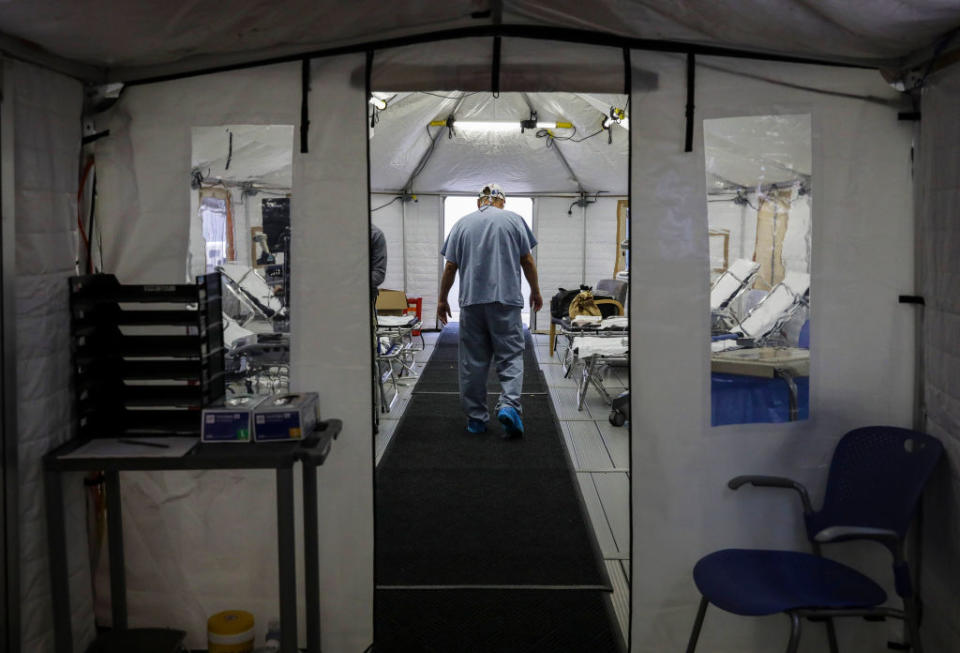
‘We are in a life-or-death situation’
The governors of Oregon and New Mexico ordered near-lockdowns Friday in the most aggressive response yet to the latest wave.
“We are in a life-or-death situation, and if we don’t act right now, we cannot preserve the lives, we can’t keep saving lives, and we will absolutely crush our current health care system and infrastructure,” Democratic Governor Michelle Lujan Grisham of New Mexico said in imposing a two-week stay-at-home order.
Oregon Governor Kate Brown ordered a two-week “freeze” starting Wednesday, under which all businesses will be required to close their offices to the public and mandate work-from-home “to the greatest extent possible.”
The surge in cases has led to crowded hospitals across the country with doctors fearing they will have to start rationing treatment and turning patients away.
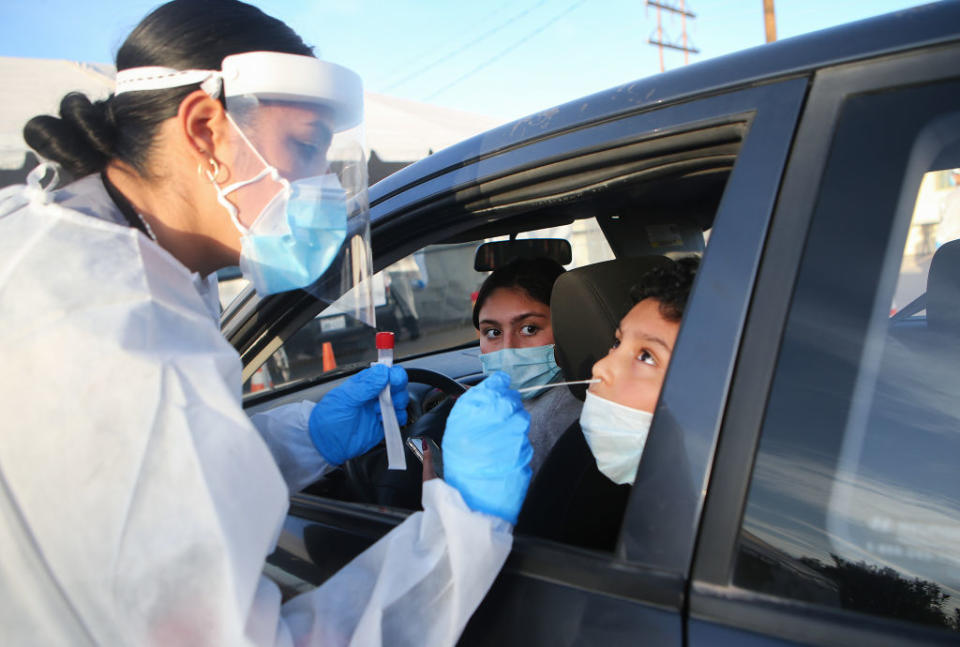
In Salt Lake City, Utah, nearly 200 nurses have been added to take pressure off the healthcare system.
Greg Bell, president of the Utah Hospital Association, said some hospitals have nearly reached 100 per cent of their ICU capacity.
Colorado Governor Jared Polis said his state will need to scale back elective procedures.
“These are our darkest days as a nation. They are our darkest days as a state,” he said.
“It’s going to take all of us working together to get through the weeks and months ahead.”
Mr Polis said that as a last resort, the state could open its overflow alternative care centres.
The temporary facilities, sometimes called field hospitals, have been set up in the Colorado Convention Center in downtown Denver, as well as in Pueblo and the Denver suburb of Westminster. They would be used to treat patients who don’t require intensive care.
In El Paso, Texas, as many as 10 mobile morgue trucks have been brought in to store the mounting number of deceased bodies. Inmates from a local prison have been brought in to help move the bodies.
📍El Paso, TX is so understaffed they are using inmates to help move deceased #COVID19 patients to the mobile overflow morgues. pic.twitter.com/4KRXYBCdWo
— Eric Feigl-Ding (@DrEricDing) November 14, 2020
Idaho’s unchecked spread of the coronavirus has become so overwhelming in some areas that medical care providers are struggling to even answer all the phone calls from would-be patients, a healthcare executive said Wednesday.
Dr David Peterman, the CEO of Primary Health Medical Group, said the company’s 20 clinics normally get about 1,800 phone calls a day. But with the pandemic raging in southwestern Idaho, the clinics are now getting nearly twice that.
In Idaho, like in many states, basic precautions intended to slow the spread of the virus — like wearing masks and social distancing — have become politicised.
“We are at the point where I can’t tell you for sure we can answer your phone calls,” Dr Peterman said.
“Regardless of what political party you’re in, you need to be able to see your doctor. I’m telling you, our clinics are being overwhelmed — if we cannot answer our phones, we cannot take care of our patients.”
Huge drive-in queues for Covid testing
Long car lines were seen outside LA’s Dodgers Stadium on Friday as thousands of tests were carried out.
Miriam Cortez, a 25-year-old resident of Los Angeles, said the testing process was safe and called on fellow Angelenos to get tested too.
"Basically, they've, like, really gotten the system down. I've been getting tested every week for the past few months because of my job. And you just, you know, pull up your email with the verification code, you show it to them through the window, there's no contact and you only have to roll down your window twice to receive the test tube and then to drop it off," she said.
Similar drive-thru testing regimes have been rolled out in other parts of the country, including Texas where long lines of vehicles queue day after day.
Drone footage also captured dozens of cars lined up for tests in Aurora, Illinois.
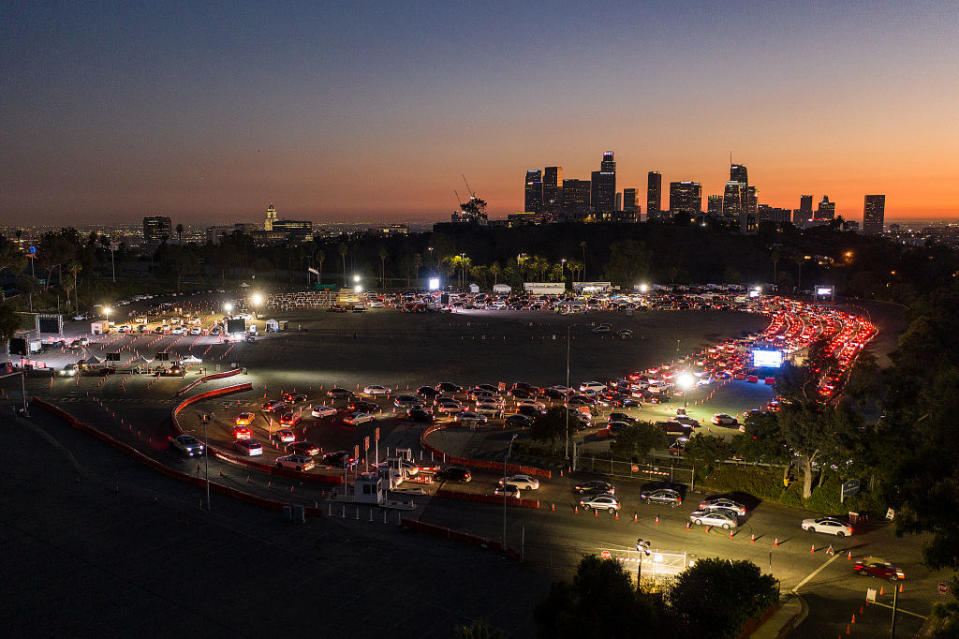
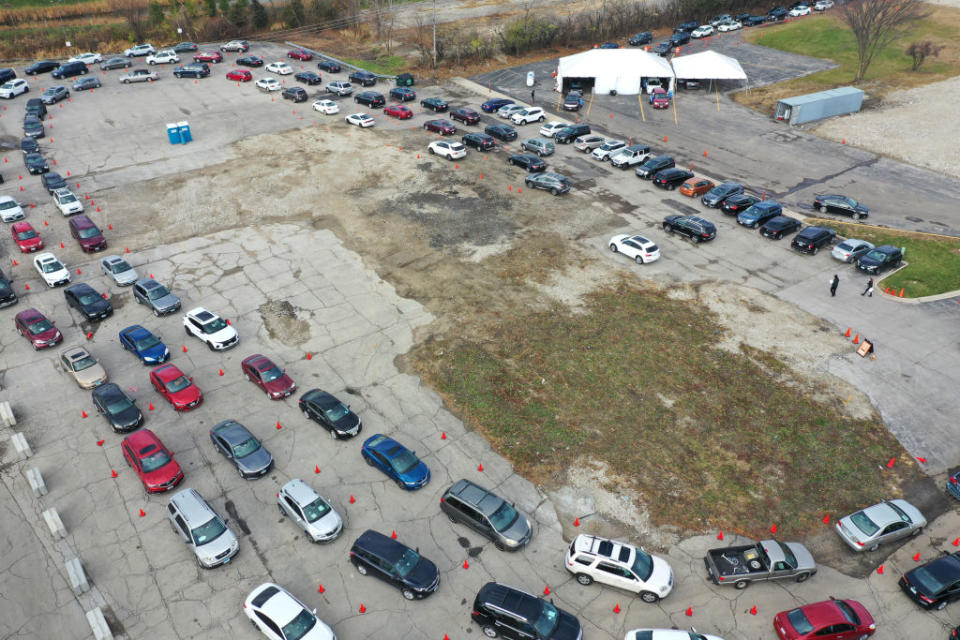
The Covid Tracking Project, run by news publication The Atlantic, reported 1.7 million tests were undertaken on Friday alone across the US.
Matt Pearce, a journalist for the LA Times, expressed dismay at the rapidly rising number of cases as the positivity rate climbs in a majority of states.
“I don’t really know what to say anymore. This is going to be one of the darkest winters in American history,” he tweeted.
I don’t really know what to say anymore. This is going to be one of the darkest winters in American history. https://t.co/kNHjfvVP24
— Matt Pearce 🦅 (@mattdpearce) November 13, 2020
Trump, states disagree over lockdown
Illinois Governor JB Pritzker said a statewide stay-at-home order might be needed to stop the spread. But there remains a disagreement as to whether states should be forced into lockdown.
On Friday (local time), US President Donald Trump again told reporters “lockdowns cost lives and they cost a lot of problems”.
“You have got to remember, the cure cannot be worse than the problem itself and I have said it many times and when you look at what happens during a lockdown, it is horrible what happens with drugs, alcohol, depression, loss of jobs, businesses closures,” he said.
“It is a terrible thing. So, this administration will not go under any circumstances, will not go to a lockdown."
While the decision to lockdown is up to each state, it remains to be seen what approach incoming president Joe Biden will take.
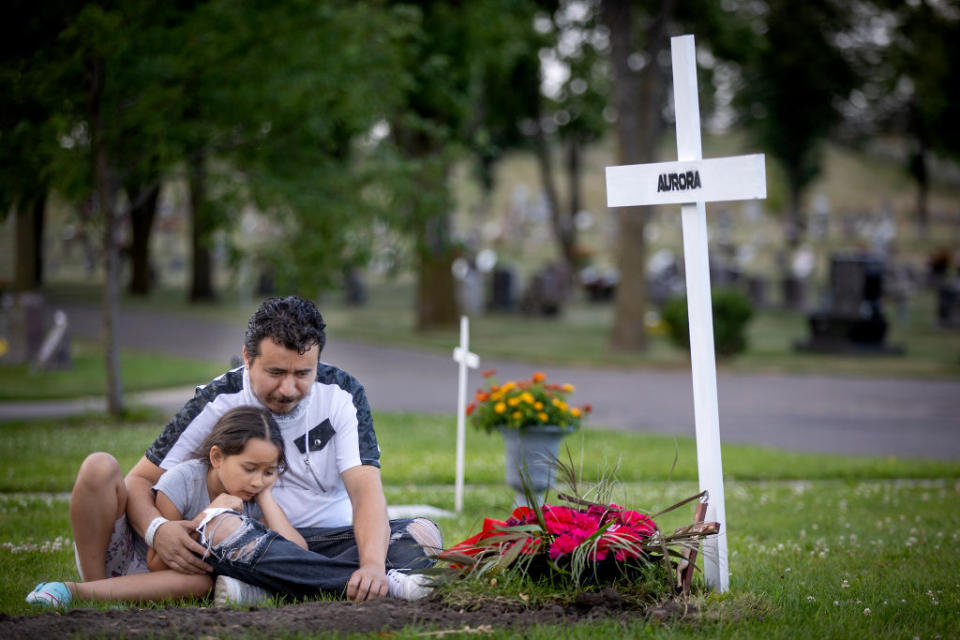
Biden's top coronavirus adviser said on Friday there were no plans for a wholesale nationwide lockdown to curb the surging Covid-19 pandemic, while three US West Coast states jointly called for a halt in non-essential travel.
“We're not in a place where we're saying shut the whole country down," Dr Vivek Murthy, a former US surgeon general, told ABC.
"Right now the way we should be thinking about this is more like a series of restrictions that we dial up or down depending on how bad a spread is taking place in a specific region," he said.
with Reuters and AP
Do you have a story tip? Email: newsroomau@yahoonews.com.
You can also follow us on Facebook, Instagram and Twitter and download the Yahoo News app from the App Store or Google Play.



